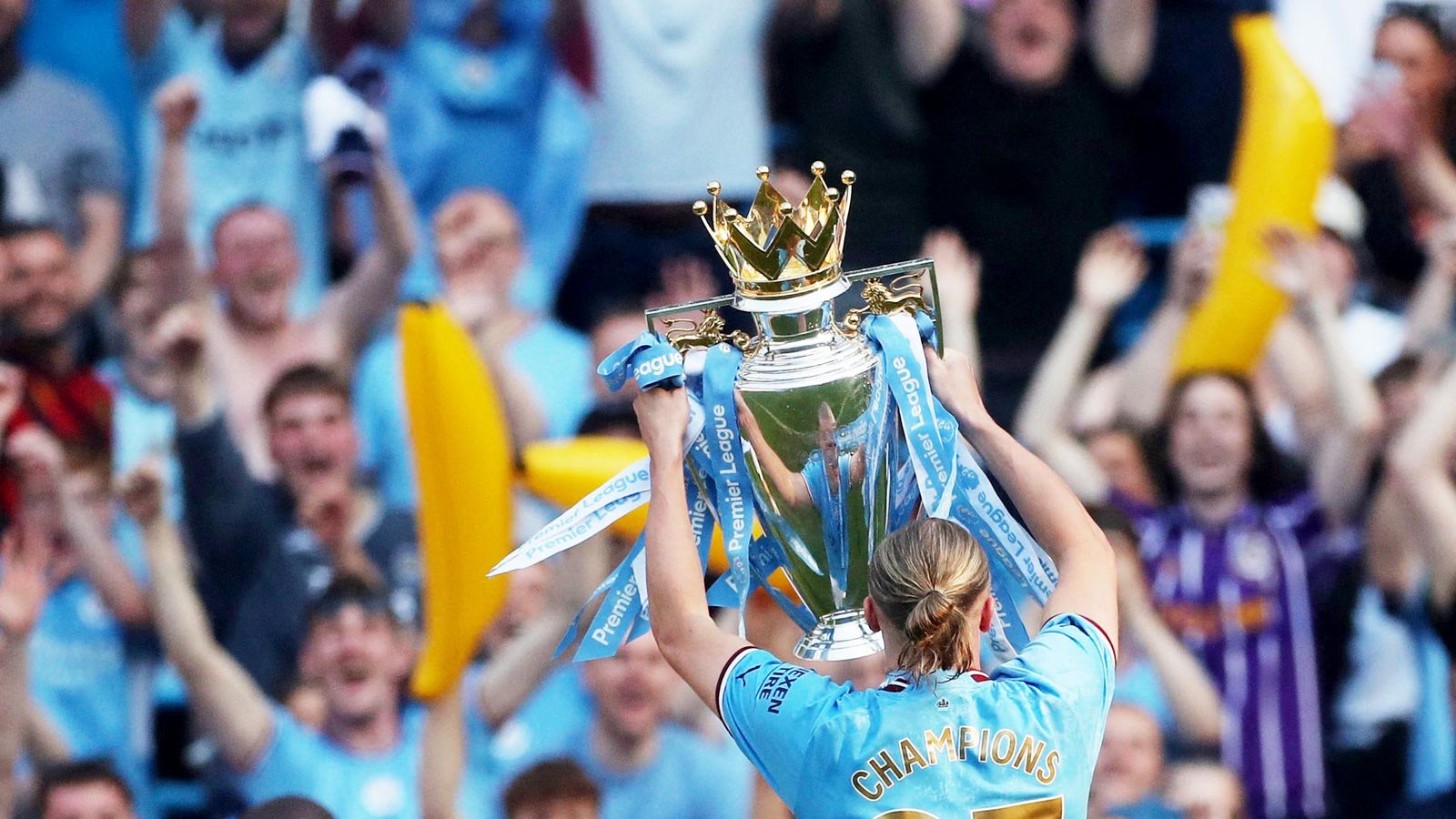The Premier League has failed to secure agreement for a new financial settlement for English football amid a continued stalemate between its clubs.
Sky News has learnt that a planned vote at a shareholder meeting on Monday afternoon was scrapped after it became clear it would not win support from the required majority of 14 clubs.
The meeting is likely to have been the last opportunity to agree the proposed £836m deal before the government introduces legislation to establish a new football regulator.
Football insiders said on Monday that the decision was “a blow” to the Premier League’s authority and would raise fresh questions about the future governance and financial management of the sport.
Money latest: Four major lenders raise mortgage rates in space of a few hours
A separate resolution on elements of the Premier League’s future financial system was overwhelmingly backed, with 19 clubs voting in favour, and only Manchester City – which is taking legal action against the League over associated party transaction rules – understood to have abstained.
One source said the outcome of the meeting highlighted the seemingly intractable impasse gripping the world’s richest domestic football league.
Office for National Statistics adds vinyl, gluten-free bread and air fryers to typical shopping basket used in inflation calculation
Money blog: Four major lenders raise mortgage rates in space of few hours – what’s going on?
More ethnic diversity in UK’s largest businesses but still work to do, analysis suggests
At the weekend, Sky News revealed that Premier League bosses were scrambling to finalise a landmark financial settlement with the English Football League (EFL).
The 20 top-flight clubs, which include Aston Villa, Liverpool and Tottenham Hotspur, were due to be asked to approve a revised version of a ‘New Deal’ that included proposals for an increased levy on player transfers.
The revamped blueprint, which comes after several previous versions were blocked by Premier League clubs, included provision for an immediate £44m payment to the lower leagues, followed by a further £44m within months.
This £88m, however, would effectively be pitched as a loan that would be repayable by the EFL over a period of more than six years.
The Premier League had decided to make the vote independent of any conditions attached to wider financial reform of English football, alarming a number of top-flight owners.
Legislation to establish the new watchdog is likely to be introduced this month, according to Whitehall sources.
Rishi Sunak has warned English football’s power-brokers that a deal will be introduced regardless of their willingness to agree it – a threat which has sparked fury among club-owners who believe the Conservatives are themselves risking the financial sustainability of the professional game.
“My hope is that the Premier League and the EFL can come to some appropriate arrangement themselves – that would be preferable,” the prime minister said in January.
“But, ultimately, if that’s not possible, the regulator will be able to step in and do that to ensure we have a fair distribution of resources across the football pyramid, of course promoting the Premier League but supporting football in communities… up and down the country.”
Talks over the New Deal have been dragging on for well over a year.
At one point last autumn, a £925m agreement looked to be inching closer, but in December, Richard Masters, the Premier League chief executive, notified clubs that it was calling a halt to further talks with the EFL because of internal divisions about the scale and structure of the proposed deal.
At a meeting with shareholders last month, however, he suggested that negotiations had again become more constructive.
Be the first to get Breaking News
Install the Sky News app for free
Some clubs appear to be resigned to the lack of a voluntary agreement, and believe the new regulator will be charged with imposing a deal as one of its first priorities.
With the time required to establish the watchdog and get it fully operational, though, government officials believe it could be 2026 before it is in a position to do so.
There has been significant unrest among Premier League clubs over the cost of the subsidy to the EFL, as well as the lack of certainty about the regulator’s powers and other financial reforms.
At least one club in the bottom half of the Premier League is understood to have raised the prospect of having to borrow money this year to fund its prospective share of the handout to the EFL.
It is among a number of governance and legal headaches facing the Premier League, with a fresh fight looming with Manchester City over the associated party transaction rules which most affect clubs with state, private equity or multi-club ownership structures.
The Premier League declined to comment.










